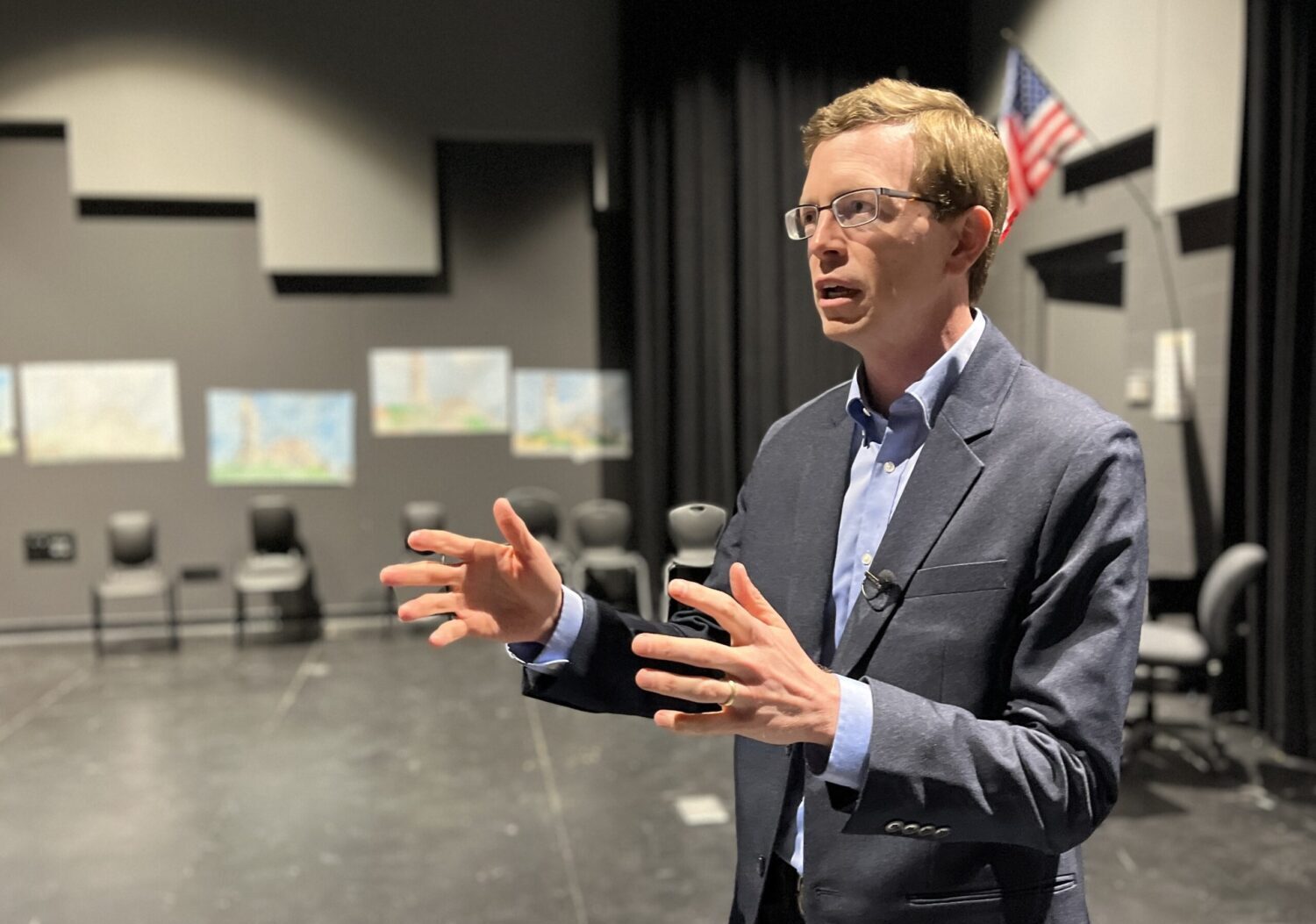
(Joshua Haiar/SD Searchlight) – South Dakota’s lone U.S. representative said Monday that a handful of his fellow Republicans with extreme positions could hurt the party’s position in negotiations on a potential government shutdown.
Congress does not have a deal yet on a short-term spending bill to avert a partial government shutdown before the new fiscal year begins Sunday.
Rep. Dusty Johnson said if a small group of his own party’s representatives do not help pass a House Republican proposal to fund the government, he and other Republicans will work across the aisle. That, Johnson said, “will ultimately mean that a far less conservative solution will be the one implemented.”
Johnson made the comments in an interview with South Dakota Searchlight during a public event Monday morning in Colton.
House members left Washington, D.C., on Thursday amid deep disagreements about how much the federal government should spend and what policy restrictions should be included in full-year spending bills as well as a stopgap measure.
“There are seven or eight Republican members of Congress who say they won’t vote for a bill to fund the government, under any circumstances,” Johnson said Monday. And with 221 Republicans in the House and 218 votes needed to pass legislation, he added, “those eight holdouts can doom any Republican effort to keep the government open.”
Johnson did not call out any members by name. On Thursday, the latest effort to avert the shutdown by starting debate on a defense spending bill failed on a 212-216 vote. Six Republicans voted no: Eli Crane of Arizona, Marjorie Taylor Greene of Georgia, Andy Biggs of Arizona, Dan Bishop of North Carolina, Matt Rosendale of Montana and Tom Cole of Oklahoma. Colorado Rep. Ken Buck and South Carolina Rep. Ralph Norman both voted yes after their earlier opposition.
Johnson said he has grown especially frustrated with “seven or eight” members after he helped negotiate a proposal with the Freedom Caucus that he said “would have secured the border and kept the government open.”
“I don’t understand Republicans who opposed that measure,” Johnson said.
When asked about their motive, Johnson said some of those Republican members “love chaos.”
“There are some who want to burn everything down, and who somehow, in their misguided thinking, believe that will make America better. They’re wrong.”
He said others may see opportunity in the chaos.
“Some politicians may believe they can impact the 2024 presidential election by trying to force more failure on the current government,” Johnson said.
He added that some politicians apparently do not understand the costs that a shutdown “imposes on the American people.”
“Government shutdowns are stupid, and they hurt real people,” Johnson said. “The politicians don’t get hurt during a shutdown.”
More than 3.5 million federal employees and military personnel — many in the Washington, D.C., area but also scattered across the states and around the globe — would be affected by a shutdown.
Most of the workers would be furloughed and go without paychecks during the shutdown. Some would have to work without pay because of the nature of their jobs, like members of the military, law enforcement officers, air traffic controllers and TSA officers. Those federal employees would get back pay once the shutdown ended.
Johnson noted potential impacts for people served by the Department of Veterans Affairs, the Internal Revenue Service, the Farm Service Agency and the Indian Health Service.
“Anyone who thinks it should be OK for sailors, soldiers, airmen and Marines to not be paid for their work is foolish,” Johnson said. “Anybody who thinks disrupting the lives of regular Americans by telling them they aren’t able to get a knee surgery at the VA, they’re not able to visit their national parks, they’re not able to access services from the IRS, FSA or IHS, is being foolish.”
Johnson said part of the problem is a decline in the number of good people running for public office because they do not view it as “the highest and best use of their efforts anymore.”
“That does mean the knucklehead quotient in D.C. has gone up a bit in recent years,” he said. “That makes it harder to run a country.”
